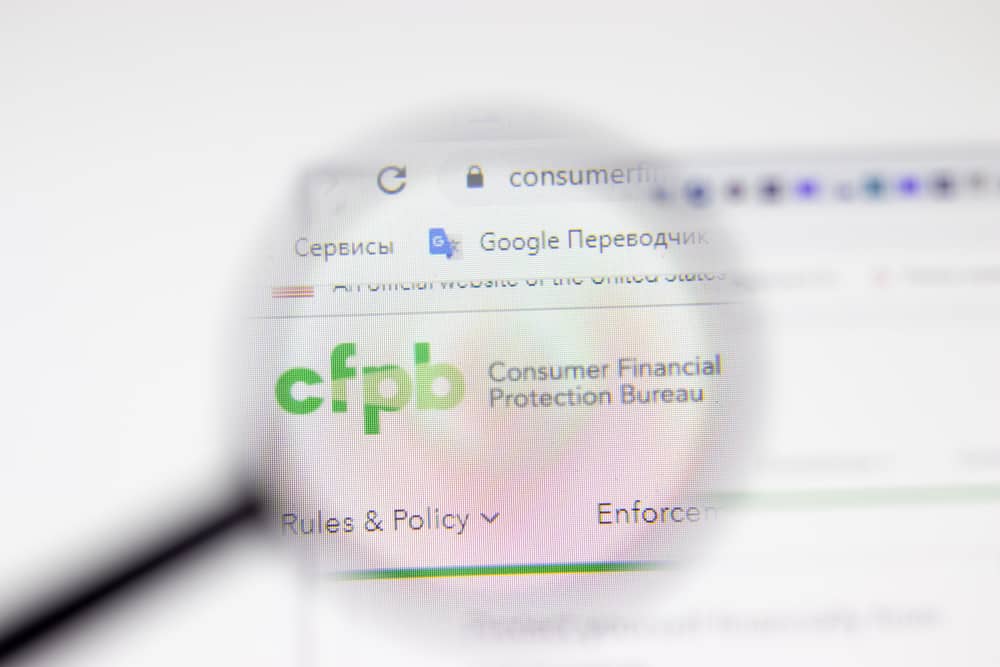The Consumer Financial Protection Bureau (CFPB) has been a pivotal institution in safeguarding consumers within the financial realm. Yet, a forthcoming Supreme Court case could potentially destabilize its very foundation, with wide-ranging consequences for homeowners and the housing market.

The Core of the Controversy: CFPB’s Funding Mechanism
The CFPB’s distinctive funding approach, which derives its funds from the Federal Reserve instead of annual congressional appropriations, has sparked debate. This case, initiated by payday lenders, challenges the constitutionality of this funding mechanism. The Fifth Circuit’s agreement with this viewpoint has thrust the issue into the Supreme Court’s purview.
The Supreme Court’s Skepticism
On October 3, the U.S. Supreme Court justices appeared skeptical of the payday lending industry’s challenge to the CFPB’s funding structure. This case, which the Biden administration has stated could jeopardize the agency established to curb predatory lending post the 2008 financial crisis, has garnered significant attention.
Questions from both liberal and conservative justices, including Brett Kavanaugh and Amy Coney Barrett, indicated doubt over the argument that the CFPB’s funding design is unconstitutional. Kavanaugh, in particular, countered the notion that the structure allows the agency to determine its funding without a meaningful limit set by Congress, stating, “Congress could change it tomorrow. And there’s nothing perpetual or permanent or about this.”
Nevertheless, a few conservative justices expressed concerns regarding the potential violation of the U.S. Constitution’s “appropriations clause” by the CFPB’s funding mechanism, which grants spending authority solely to Congress. In response, U.S. Solicitor General Elizabeth Prelogar argued in favor of the CFPB’s funding mechanism, citing similarities with other financial regulators such as the Federal Reserve Board and the Federal Deposit Insurance Corporation.
Liberal Justice Elena Kagan pointedly asked the challengers about the repercussions of deeming the CFPB’s funding structure unconstitutional, highlighting potential implications for the Federal Reserve.
The Potential Repercussions on the Housing Sector
Rohit Chopra, the CFPB Director, in a recent speech at the Mortgage Collaborative National Conference, highlighted the possible ramifications of an unfavorable ruling. Since its inception in 2011, post the 2008 recession that saw nearly 4 million Americans lose their homes, the CFPB has set standards to ensure mortgage borrowers’ capability to repay their loans. As per CFPB’s research, these stringent regulations on the mortgage sector have shielded 26,000 families from foreclosure and a further 127,000 borrowers from delinquency.
However, a Supreme Court decision against the CFPB’s funding model could jeopardize the housing market’s stability. Such a verdict might lead to regulatory ambiguity, potentially causing disruptions in the mortgage sector and the broader financial system.
Stakeholders’ Perspective
Prominent housing groups, including the Mortgage Bankers Association, the National Association of Home Builders, and the National Association of Realtors, have voiced their apprehensions. They caution about potential turmoil in the mortgage market and underscore the significance of the CFPB’s regulations in ensuring stability.
In an amicus brief to the Supreme Court, these groups stated, “The litigation and widespread uncertainty resulting from a decision that suddenly questioned all of CFPB’s rules would be catastrophic for the mortgage market.” They further elaborated on the potential freeze on new loans, which would severely limit consumers’ options for buying or selling homes. With almost 80% of all homebuyers relying on loans to purchase homes, and this figure escalating to 97% for first-time homebuyers, the implications are profound. The groups also highlighted the disproportionate negative impact on minority communities.
Moreover, the economic fallout of an adverse Supreme Court decision could be extensive, as thousands of Americans employed in the mortgage sector might face unemployment if the mortgage market collapses.
Broader Implications for the Financial System
Beyond the housing market, an adverse ruling could have wider implications for the financial system. The CFPB’s regulations have been instrumental in preventing systemic abuses. A decision against the bureau’s funding could pave the way for challenges to other agencies with similar funding structures, like the Federal Reserve.
The impending Supreme Court decision on the CFPB’s funding structure is not merely a legal formality. It holds substantial implications for homeowners, the housing market, and the broader financial system. As the case progresses, stakeholders and consumers will be observing closely, hoping for a resolution that ensures continued protection and stability in the financial sector.
 How to Cancel Your Credit One Card: A Step-by-Step GuideNovember 28, 2023
How to Cancel Your Credit One Card: A Step-by-Step GuideNovember 28, 2023 How to Get Rid of Ability Recovery Services on Credit ReportDecember 14, 2023
How to Get Rid of Ability Recovery Services on Credit ReportDecember 14, 2023 How to Handle Transworld Systems (TSI) on Your Credit ReportDecember 6, 2023
How to Handle Transworld Systems (TSI) on Your Credit ReportDecember 6, 2023 How to Handle Credit Collection Services (CCS) on Your Credit ReportOctober 24, 2023
How to Handle Credit Collection Services (CCS) on Your Credit ReportOctober 24, 2023 How to Remove Hard Inquiries from Your Credit Report in 15 MinutesOctober 10, 2023
How to Remove Hard Inquiries from Your Credit Report in 15 MinutesOctober 10, 2023










